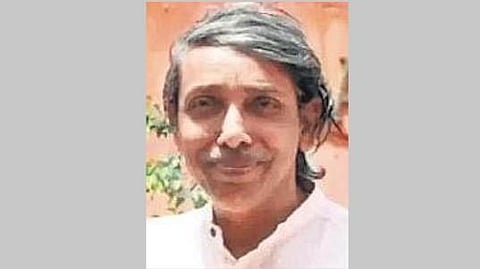

BENGALURU: Strongly criticising the Western model of funding educational institutions, which typically relies on a 1/3 split between tuition fees, endowments, and research grants, the Chairman of the University Grants Commission (UGC) Prof Mamidala Jagadesh Kumar argued that the adoption of Western model is unsuitable for India, where such an approach would make education inaccessible to many.
Prof Kumar was speaking during a session - ‘Building New Age Universities’ - hosted by the Centre for Educational Excellence and Development (CEED), operating under the Centre for Educational and Social Studies (CESS) on Wednesday, where he advocated for a more India-centric funding strategy that emphasises philanthropy, alumni support, and stronger industry collaborations. The event focused on the imperative for Indian universities to adapt to the rapidly evolving global education landscape. Key topics included the creation of flexible, interdisciplinary educational frameworks, the integration of multidisciplinary and holistic education, and the advancement of research and innovation within universities.
Prof Kumar emphasised that while structural reforms under the National Education Policy (NEP), 2020, such as multi-entry and multi-exit options, institutional development, and new course frameworks, are crucial, they must be implemented in conjunction with the underlying spirit of the policy. He cautioned against focusing solely on these structural changes at the expense of the policy’s core values, which aim to create a sustainable, healthy, secure, and peaceful future.
Addressing the challenges of realising such a future, the chairman highlighted the need for educational institutions to serve society at large, particularly in rural areas. He noted that a significant portion of India’s youth, 60% of whom live in rural areas, prefer to remain in their villages, underscoring the importance of designing educational programmes that cater to their needs and aspirations.
He also discussed the colonial mindset still influencing Indian education, particularly the misconception that Indian languages are inferior to English as mediums of instruction. He argued that students can achieve better educational outcomes by thinking and learning in their native languages, while using English as a tool for global communication, and emphasised that NEP 2020 seeks to break free from this colonial legacy by promoting education in Indian languages.